Home>Garden Essentials>What Is The Controversy With The GMO Seeds Produced By Monsanto
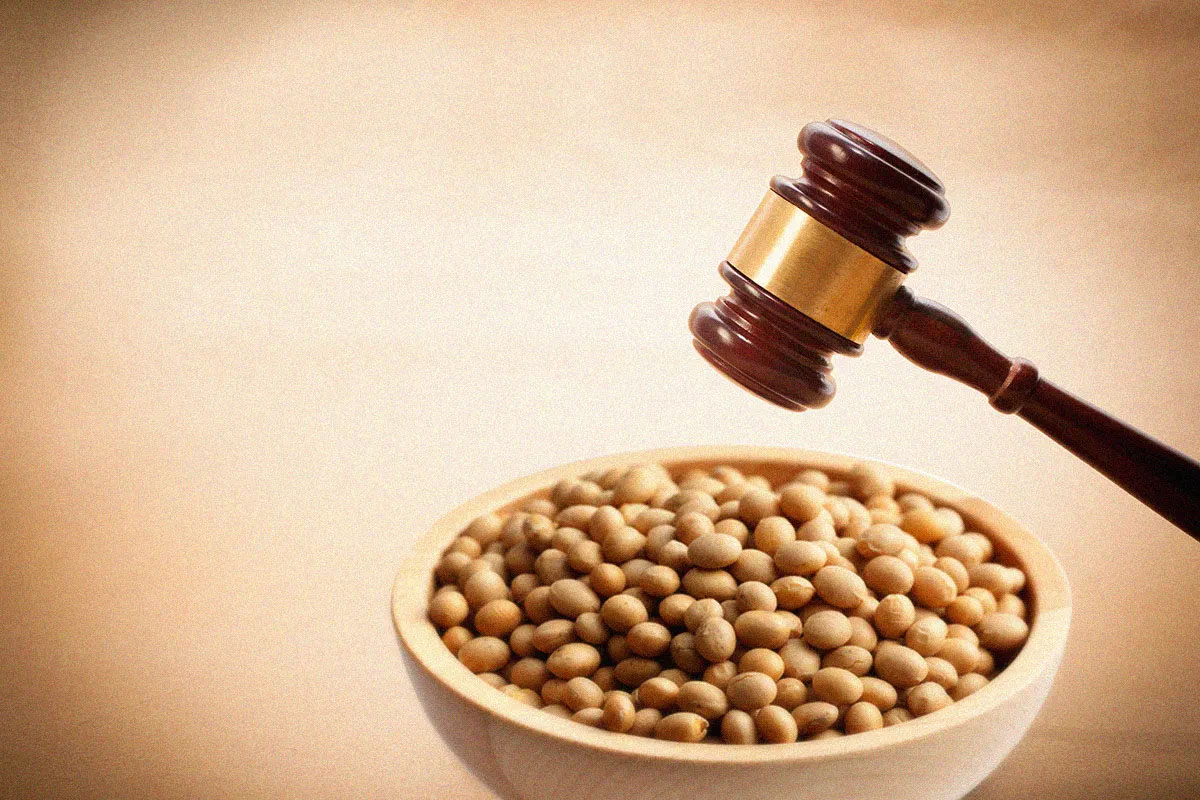

Garden Essentials
What Is The Controversy With The GMO Seeds Produced By Monsanto
Modified: March 15, 2024
Learn about the controversy surrounding Monsanto's GMO seeds and their impact on the garden. Find out why many are questioning their safety and sustainability.
(Many of the links in this article redirect to a specific reviewed product. Your purchase of these products through affiliate links helps to generate commission for Storables.com, at no extra cost. Learn more)
Introduction
Welcome to the world of genetically modified organisms (GMOs) and the controversy surrounding the GMO seeds produced by Monsanto. In recent years, the topic of GMOs has sparked heated debates and created a divide among consumers, scientists, farmers, and environmentalists. Despite their potential benefits, GMO seeds have faced significant opposition due to concerns about their impact on human health, the environment, and sustainable agriculture.
To understand the controversy surrounding GMO seeds, it is essential to have a basic understanding of what GMOs are. Genetically modified organisms are living organisms whose genetic material has been altered through genetic engineering techniques. In the context of agriculture, GMOs refer to crops that have been genetically modified to possess certain desirable traits, such as resistance to pests, herbicides, or extreme weather conditions.
Monsanto, a multinational agricultural biotechnology corporation, has emerged as a prominent player in the GMO industry. Monsanto has developed and patented a variety of GMO seeds, including those with traits like insect resistance and herbicide tolerance. These seeds have gained significant market share globally, and their usage continues to expand.
However, Monsanto’s GMO seeds have been marred by controversies and criticisms. Critics argue that the widespread use of GMO seeds poses threats to the livelihoods of farmers, the environment, and human health. This article delves into the specific controversies associated with Monsanto’s GMO seeds, exploring their impact on farmers, the environment, and health and safety risks. We will also touch on regulatory issues, economic implications, public perception, and opposition towards Monsanto and GMOs in general.
By examining these controversies, we hope to shed light on the challenges and concerns surrounding GMO seeds produced by Monsanto, while also providing a balanced perspective on the topic. It is important to note that the intention is not to promote or condemn GMOs, but rather to present a comprehensive overview of the controversies, allowing readers to form their own informed opinions.
Now, let us dive into the intricate world of GMO seeds and the contentious issues surrounding Monsanto’s role in this domain.
Key Takeaways:
- Monsanto’s GMO seeds have sparked debates due to concerns about farmer autonomy, environmental impact, and potential health risks. The controversies highlight the need for transparency and informed decision-making in the use of genetically modified crops.
- Public perception and opposition to GMOs, including Monsanto’s products, have led to demands for labeling, activism, and discussions about the role of corporations in agriculture. The controversies surrounding GMOs call for further research and informed dialogue to address the concerns and aspirations of farmers and consumers.
Read more: When Did Monsanto Begin To Market GMO Seeds
Background on GMO Seeds
In order to fully understand the controversies surrounding GMO seeds produced by Monsanto, it is important to have a solid understanding of their background and development. The concept of genetically modified organisms and the manipulation of their genetic material has been around for decades.
The advent of genetic engineering techniques in the 1970s allowed scientists to manipulate the DNA of living organisms, leading to the creation of genetically modified crops. This was done by introducing genes from one species into another, allowing desirable traits to be expressed in crops. These traits can include resistance to pests, herbicide tolerance, increased nutritional value, and improved crop yield.
The development of GMOs in agriculture was seen as a potential solution to various challenges facing food production. Proponents argue that genetically modified crops have the potential to increase productivity, reduce reliance on chemical pesticides, adapt to changing climate conditions, and address issues related to food security.
However, concerns arose about the long-term impacts of GMOs on the environment, human health, and the sustainability of agricultural practices. Critics argue that the introduction of genetically modified crops may result in unintended consequences, such as the development of herbicide-resistant weeds and the decline of beneficial insects.
Amidst these debates, Monsanto entered the scene as a major player in the field of genetically modified crops. The company’s focus on developing GMO seeds with specific traits, such as resistance to insects and tolerance to herbicides, gained significant attention and brought them into the spotlight.
Monsanto’s GMO seeds, including their flagship products like Roundup Ready soybeans and Bt cotton, quickly gained popularity among farmers due to their potential to improve crop performance and reduce input costs. Roundup Ready seeds were engineered to be resistant to glyphosate, the active ingredient in Monsanto’s herbicide Roundup, allowing farmers to spray the herbicide directly onto the crops without harming them.
Bt cotton, on the other hand, was engineered to produce a protein toxic to certain insect pests, reducing the need for insecticides and increasing crop yield. These traits offered convenience and promised greater profitability for farmers, leading to the widespread adoption of Monsanto’s GMO seeds.
However, along with their popularity, Monsanto’s GMO seeds also drew significant controversy and scrutiny. The next sections of this article will delve into the specific controversies surrounding Monsanto’s GMO seeds, including their impact on farmers, environmental concerns, health and safety risks, regulatory issues, economic implications, and public perception.
Overview of Monsanto
Monsanto is an American multinational agricultural biotechnology corporation that has played a significant role in the development and commercialization of genetically modified organisms (GMOs). Established in 1901, the company initially focused on producing agricultural chemicals, such as the insecticide DDT.
However, Monsanto’s trajectory shifted in the 1980s when they entered the biotechnology arena, eventually becoming one of the leaders in GMO seed production. Through research and development efforts, Monsanto has engineered and patented a range of GMO seeds with desirable traits.
One of Monsanto’s most well-known and controversial products is Roundup, a glyphosate-based herbicide. This herbicide became highly popular alongside Monsanto’s Roundup Ready seeds, which were genetically modified to tolerate the application of glyphosate. This allowed farmers to effectively control weeds while minimizing damage to their genetically modified crops.
Monsanto has also developed other genetically modified crops, such as Bt (Bacillus thuringiensis) cotton and corn. Bt crops produce a protein toxic to certain insects, reducing the need for chemical insecticides. Monsanto’s focus on engineering crops resistant to pests and herbicides made them a major player in the biotechnology industry.
Over the years, Monsanto has faced scrutiny and legal challenges regarding their business practices and the safety of their products. Critics argue that the company has monopolistic tendencies by aggressively protecting their patented seeds, resulting in legal battles with farmers accused of patent infringement.
Monsanto’s aggressive approach to patent protection has also been criticized for limiting farmers’ access to traditional, non-genetically modified seeds. Some argue that this undermines agricultural biodiversity and places excessive power in the hands of seed corporations.
Furthermore, concerns have been raised about the potential adverse effects of Monsanto’s products on human health and the environment. The use of glyphosate has been linked to environmental pollution and the decline of beneficial insects, such as honeybees. There are also concerns about the long-term effects of consuming genetically modified crops, although scientific studies have yielded mixed results on their safety.
Throughout its history, Monsanto has attracted both staunch supporters and fervent opponents. Supporters argue that their products have the potential to increase agricultural productivity, reduce chemical pesticide usage, and contribute to global food security.
Opponents, on the other hand, believe that Monsanto’s dominance in the GMO industry has negative ecological, economic, and social implications. They point to concerns about the impact of genetically modified crops on biodiversity, the control of the seed supply by corporations, the potential for corporate manipulation of agricultural resources, and the limited choice and autonomy of farmers.
The controversies and debates surrounding Monsanto and its GMO products have made it a lightning rod for discussions on agricultural practices, food safety, and the role of biotechnology in our society. In the following sections, we will delve into some of the specific controversies and issues associated with Monsanto’s GMO seeds.
Controversies Surrounding Monsanto’s GMO Seeds
Monsanto’s GMO seeds have been at the center of numerous controversies, sparking intense debates and drawing criticism from various groups. The controversies surrounding Monsanto’s GMO seeds can be categorized into four main areas: impact on farmers, environmental concerns, health and safety risks, and regulatory issues.
Impact on Farmers: One of the key controversies surrounding Monsanto’s GMO seeds is their impact on farmers. Critics argue that the company’s aggressive patent protection and intellectual property rights enforcement make it difficult for farmers to save and replant seeds, limiting their choice and autonomy.
Legal battles between Monsanto and farmers accused of patent infringement have gained significant media attention. Some farmers claim they unintentionally used Monsanto’s patented seeds through cross-pollination or contamination and were subsequently sued by the company. This has led to concerns about the legal and financial burden faced by farmers.
Environmental Concerns: Another major point of contention is the environmental impact of Monsanto’s GMO seeds. The widespread use of glyphosate-based herbicides, such as Roundup, has raised concerns about water contamination, soil health, and the disruption of ecosystems.
There are also concerns about the development of glyphosate-resistant superweeds. Over time, the repeated use of herbicides can lead to the evolution of weeds that are no longer susceptible to the herbicide, requiring even stronger chemicals or alternative control measures.
Critics argue that the proliferation of herbicide-resistant crops has led to increased herbicide usage, creating a detrimental cycle of escalating chemical use. This, in turn, poses risks to wildlife, beneficial insects, and biodiversity.
Health and Safety Risks: The potential health risks associated with consuming GMOs and the use of associated chemicals have been a subject of debate. Some studies have raised concerns about the long-term effects of genetically modified crops on human health.
While scientific consensus generally supports the safety of GMOs, opponents argue that the long-term impacts are not yet fully understood. Critics also raise concerns about potential allergenicity, antibiotic resistance marker genes present in some GMOs, and the transfer of genetic material to non-target organisms.
Regulatory Issues: The regulatory framework surrounding GMOs has been a contentious issue. Critics argue that regulatory agencies are not adequately assessing the safety and environmental impact of GMOs or that they may be influenced by industry interests.
Some opponents argue for stricter labeling requirements to inform consumers about the presence of GMOs in food products, allowing for greater transparency and consumer choice. Others call for moratoriums or stricter regulations on the commercial cultivation of GMO crops until their long-term impacts are better understood.
The controversies surrounding Monsanto’s GMO seeds extend beyond these four areas. Economic implications, such as concerns about the control of the seed supply and the concentration of power in the biotech industry, also play a role. Additionally, opposition from consumer advocacy groups, NGOs, and public perception have led to increased public scrutiny and resistance towards Monsanto and GMOs in general.
While acknowledging the controversies, it is important to note that there are also supporters of GMOs who argue that they offer benefits, including increased crop yields, reduced chemical usage, and the potential to address global food security challenges.
Now that we have explored the controversies surrounding Monsanto’s GMO seeds, we will delve deeper into the specific impacts on farmers, environmental concerns, health and safety risks, regulatory issues, and the economic and socio-political implications of their use.
Impact on Farmers
The impact of Monsanto’s GMO seeds on farmers has been a subject of significant controversy and debate. While proponents argue that these seeds offer benefits such as increased crop productivity and reduced pesticide use, critics raise concerns about farmers’ autonomy, legal battles, and the concentration of power in the hands of seed corporations.
One of the main issues raised is Monsanto’s aggressive enforcement of their patent protection and intellectual property rights. Farmers who unintentionally use Monsanto’s patented seeds through cross-pollination or contamination have found themselves facing legal battles for patent infringement. These legal battles can be financially burdensome for small-scale farmers, who may not have the resources to fight against a large corporation like Monsanto.
Opponents argue that this aggressive patent enforcement limits farmers’ freedom to save and replant seeds, a practice that has been common in agriculture for generations. With the introduction of GMO seeds, farmers are often required to purchase new seeds each planting season, making them more dependent on seed corporations like Monsanto.
The concentration of power in the hands of a few companies, including Monsanto, has also raised concerns about the control of the seed supply. Critics argue that this consolidation leads to limited choice for farmers and undermines agricultural biodiversity. They claim that the dominance of genetically modified crops may result in the loss of traditional, non-genetically modified varieties, which could impact food security and resilience to environmental changes.
In addition to these legal and economic concerns, there is also a broader socio-cultural issue at play. Critics argue that the widespread adoption of GMO seeds, particularly those engineered to be herbicide-resistant, can change farming practices. The use of herbicides like glyphosate, in combination with Monsanto’s Roundup Ready seeds, has led to a shift towards a reliance on chemical inputs rather than more sustainable farming methods.
Furthermore, some farmers have also reported yield fluctuations and unexpected challenges when cultivating genetically modified crops. The performance of GMO seeds can vary depending on specific growing conditions, and farmers who experience lower yields or unforeseen problems may find themselves at a disadvantage economically.
However, it is important to note that there are also farmers who have adopted Monsanto’s GMO seeds and have seen positive results. These farmers argue that GMO seeds have improved their crop yields, reduced pest damage, and provided more efficient weed control.
The impact of Monsanto’s GMO seeds on farmers is complex and multifaceted. While some farmers benefit from the advantages offered by these seeds, others face legal battles, limited choices, and environmental concerns. The future of farming and the role of GMO seeds in agriculture continue to be hotly debated, with the aim of finding a balance between the interests of farmers, consumers, and the environment.
In the next sections, we will explore the environmental concerns related to the use of Monsanto’s GMO seeds and the health and safety risks associated with their consumption.
Read more: What Chemical Is In GMO Seeds
Environmental Concerns
Environmental concerns surrounding Monsanto’s GMO seeds have been at the forefront of the controversy surrounding their use. Critics argue that the widespread cultivation of genetically modified crops has several adverse impacts on ecosystems, biodiversity, and sustainable farming practices.
One of the primary concerns is the extensive use of glyphosate-based herbicides, such as Monsanto’s Roundup, in conjunction with their Roundup Ready crops. Farmers using Roundup Ready seeds can spray glyphosate directly onto their crops to control weeds without causing harm to the genetically modified plants. However, the widespread use of glyphosate has led to the emergence of glyphosate-resistant weeds, commonly known as superweeds.
The evolution of these superweeds poses a significant challenge for farmers, as they require increased herbicide usage, including stronger chemicals, to combat them. This leads to concerns about the overreliance on chemical controls and the potential harm to non-target organisms, including beneficial insects and wildlife.
The increased use of herbicides also raises concerns about water contamination and its effects on aquatic ecosystems. Runoff from farms can carry herbicides into nearby water sources, potentially harming fish, amphibians, and other aquatic organisms. Additionally, the persistence of glyphosate in the environment has raised questions about its impact on soil health and microbial activity.
Another environmental concern associated with Monsanto’s GMO seeds is the potential impact on beneficial insects, particularly pollinators like bees and butterflies. The use of genetically modified crops and associated herbicides can disrupt pollinator habitats, reduce floral resources, and affect the health and survival of these important species.
In addition to the immediate impacts on ecosystems and biodiversity, the long-term effects of genetically modified crops on agroecosystems are still not fully understood. Critics argue that the genetic modifications introduced into crops can have unintended consequences, such as unforeseen ecological interactions and changes in soil microbial communities.
The concerns regarding environmental impacts are further fueled by the potential for gene flow from genetically modified crops to wild or weedy relatives. This can result in the hybridization of genetically modified plants with wild counterparts, potentially leading to the transfer of engineered traits into wild populations. The potential ecological consequences of these gene flow events remain a subject of ongoing study and debate.
It is important to note that proponents of GMOs argue that these crops can offer environmental benefits, such as reduced pesticide use or increased land efficiency. They contend that decreased insecticide usage, facilitated by genetically engineered crops with built-in pest resistance, can lead to a reduction in overall chemical inputs and have a positive ecological impact.
However, given the complexity of ecosystems and the potential risks associated with GMOs, many skeptics call for more comprehensive and independent research to assess the long-term environmental impacts of genetically modified crops, particularly those produced by Monsanto.
In the following sections, we will explore the health and safety risks associated with consuming Monsanto’s GMO seeds and the regulatory issues surrounding their approval and labeling.
When discussing the controversy with GMO seeds produced by Monsanto, it’s important to consider the potential environmental and health impacts, as well as the legal and ethical issues surrounding patenting and control of the seeds.
Health and Safety Risks
The health and safety risks associated with consuming Monsanto’s GMO seeds have been subjects of intense debate and scientific scrutiny. While proponents argue that these crops are safe for human consumption, critics raise concerns about potential allergenicity, the presence of antibiotic resistance genes, and the long-term effects on human health.
One of the main concerns is the potential for allergic reactions to genetically modified crops. GMOs may introduce new proteins or alter existing ones, which can trigger allergic responses in susceptible individuals. Critics argue that the process of genetic modification inherently introduces uncertainties about potential allergenic effects.
Another issue of contention is the presence of antibiotic resistance marker genes in some genetically modified crops. These marker genes are used during the genetic modification process to select and identify successfully transformed cells. Opponents argue that the transfer of antibiotic resistance genes from genetically modified food to bacteria in the human gut could contribute to the development of antibiotic resistance, jeopardizing the effectiveness of antibiotics in treating infections.
While there is scientific consensus that genetically modified crops currently on the market are generally safe for consumption, there are ongoing debates regarding the long-term health effects of consuming GMOs. Critics argue that the potential impacts of GMOs on human health are not yet fully understood, and more independent and long-term studies are needed to assess their safety.
Some studies have raised concerns about potential health risks, including the possibility of organ damage, toxic effects, and metabolic disorders due to the consumption of genetically modified crops. However, the scientific community overall has not reached a consensus on these issues.
Regulatory bodies, such as the U.S. Food and Drug Administration (FDA), have determined that genetically modified crops are substantially equivalent to their non-GMO counterparts and do not require specific safety evaluations. However, critics argue that the regulatory framework for GMOs has been influenced by industry interests and lacks sufficient independent testing and oversight.
Labeling is another aspect of the health and safety concerns surrounding GMOs. Opponents argue that consumers have the right to know whether the products they are purchasing contain genetically modified ingredients. They advocate for mandatory labeling to provide transparency and allow individuals to make informed choices about the food they consume.
It is important to note that scientific consensus supports the safety of genetically modified crops currently on the market. Extensive testing is conducted before these crops are approved for release, and they go through rigorous evaluations to ensure they meet safety standards. However, there are ongoing debates and calls for continued monitoring and research to improve our understanding of the potential health impacts of GMOs.
In the next sections, we will provide an overview of the regulatory issues surrounding Monsanto’s GMO seeds and explore the economic and socio-political implications of their use.
Regulatory Issues
The regulatory framework surrounding Monsanto’s GMO seeds has been a contentious issue, with concerns raised about the evaluation, approval, and labeling of genetically modified crops. Critics argue that the regulatory process is inadequate, influenced by industry interests, and lacks sufficient transparency and independent scientific assessment.
In the United States, the regulatory oversight of GMOs primarily falls under three federal agencies: the U.S. Department of Agriculture (USDA), the Environmental Protection Agency (EPA), and the Food and Drug Administration (FDA).
The USDA regulates GMO crops with a focus on protecting plant health and the environment. However, critics argue that the agency’s evaluation process primarily focuses on the potential for GMO crops to become plant pests or noxious weeds, rather than assessing broader environmental and health impacts.
The EPA evaluates and regulates the use of pesticides, including those used in conjunction with Monsanto’s GMO crops. Concerns have been raised about the effectiveness of pesticide regulations, including potential risks to human health and the environment. Critics argue that the reliance on industry-funded studies for pesticide assessments may lead to conflicts of interest and biased outcomes.
The FDA’s role in GMO regulation largely focuses on the safety of GMO foods and their labeling. Currently, the FDA does not require specific safety evaluations for genetically modified crops before they enter the market. The agency operates under the principle of substantial equivalence, which means that genetically modified crops are considered safe if they are found to be substantially similar to their non-GMO counterparts.
Opponents argue that the substantial equivalence principle does not adequately address potential long-term health risks associated with GMOs. They emphasize the need for independent and rigorous safety assessments before products are approved for commercialization.
Labeling of GMO foods is another contentious issue. Critics argue that consumers have the right to know whether the products they purchase contain genetically modified ingredients. They advocate for mandatory labeling to provide transparency and the ability to make informed choices about the food they consume.
The debate over GMO labeling led to state-level initiatives, such as California’s Proposition 37 and Oregon’s Measure 92, which aimed to mandate the labeling of genetically modified foods. However, these initiatives faced strong opposition and ultimately failed to pass.
Internationally, regulatory approaches to GMOs vary. Some countries, such as those within the European Union, have implemented more stringent regulations on genetically modified crops, including mandatory labeling. Other countries have taken different approaches, with some banning GMO cultivation altogether and others allowing for deregulation.
The complex and varying regulatory landscape has created challenges for companies like Monsanto, who face different regulations in different jurisdictions. Critics argue that harmonization and improved transparency in regulatory processes are needed to ensure the safety and proper assessment of GMOs on a global scale.
In the following sections, we will explore the economic and socio-political implications of using Monsanto’s GMO seeds and discuss public perception and opposition to genetically modified crops.
Economic and Socio-Political Implications
The use of Monsanto’s GMO seeds has significant economic and socio-political implications, shaping the agricultural landscape, influencing global trade, and impacting the livelihoods of farmers.
From an economic perspective, proponents argue that genetically modified crops have the potential to increase agricultural productivity and contribute to food security. They contend that GMO seeds, such as those produced by Monsanto, can improve crop yields, reduce losses due to pests and diseases, and withstand environmental pressures, leading to increased profitability for farmers.
Supporters also highlight the potential economic benefits for seed companies like Monsanto, as the widespread adoption of GMO seeds can generate substantial revenue through seed sales, licensing agreements, and royalties.
However, critics argue that the economic implications of GMO seeds are not uniformly positive. They highlight concerns about the control of the seed supply by a few companies, including Monsanto, which can limit farmer autonomy and choice. The concentration of power in the hands of seed corporations may result in increased seed prices and decreased biodiversity as smaller seed companies struggle to compete.
Additionally, the introduction of GMO seeds can lead to increased input costs for farmers. While genetically modified crops may offer some advantages, such as reduced pesticide use, farmers are often required to purchase new seeds each planting season. This dependency on seed corporations can impact small-scale farmers, who may face financial challenges and reduced access to traditional, non-genetically modified seed varieties.
On a socio-political level, the use of GMO seeds has sparked debates about the role of corporations in agriculture and the control of food production. Critics argue that the dominance of companies like Monsanto in the biotech industry has implications for food sovereignty, farmer autonomy, and agricultural diversity.
Opponents raise concerns about the influence of seed corporations on agricultural policies, intellectual property rights, and the concentration of power in the hands of a few multinational corporations. They argue that the patenting and privatization of genetically modified crops raise ethical questions about the ownership of life forms and the commodification of food and agricultural resources.
The controversy surrounding Monsanto’s GMO seeds has also influenced global trade discussions. Countries with differing views on genetically modified crops, labeling, or cultivation restrictions have faced challenges in negotiating trade agreements. Some nations have imposed restrictions on importing genetically modified products, leading to trade tensions and disputes related to genetically modified crops.
The socio-political implications of using Monsanto’s GMO seeds extend beyond economic and trade considerations. The debate surrounding GMOs has sparked public awareness and activism around issues such as agricultural sustainability, environmental stewardship, and food transparency. It has led to increased discussions about alternative agricultural models, organic farming practices, and the importance of preserving traditional seed varieties.
The diverse perspectives and debates surrounding Monsanto’s GMO seeds highlight the complexities and interplay between economic, political, and societal factors. Balancing the potential benefits with the concerns and implications of genetically modified crops remains a pressing challenge for policymakers, scientists, farmers, and consumers.
In the next section, we will explore public perception and opposition to genetically modified crops, including Monsanto’s GMO seeds.
Read more: What Are GMO Seeds
Public Perception and Opposition
Public perception and opposition to genetically modified crops, including Monsanto’s GMO seeds, have played a significant role in shaping the debate and influencing policies surrounding these products. The controversy surrounding GMOs has sparked public concern, activism, and debates about their safety, environmental impact, and ethical considerations.
One of the key aspects of public perception is the lack of consumer awareness and understanding of genetically modified crops. Surveys have shown that many consumers have limited knowledge about GMOs and how they are developed. This lack of understanding can contribute to public skepticism and concern about the safety and long-term effects of consuming genetically modified foods.
Public opinion regarding GMOs and Monsanto’s GMO seeds varies widely. Some segments of the population are supportive of genetically modified crops, citing potential benefits such as increased food production, reduced use of chemical pesticides, and improved crop resilience in the face of climate change.
However, there is also significant opposition to GMOs, including Monsanto’s products. Concerned individuals and advocacy groups question the safety of genetically modified crops and are critical of corporate control and concentration of power in the agricultural sector.
Opponents argue that GMOs pose risks to human health, the environment, and agricultural diversity. They raise concerns about potential allergenicity, the possibility of unintended environmental impacts, such as the development of herbicide-resistant superweeds or the decline of beneficial insects, and the long-term effects of consuming genetically modified foods.
Public perception and opposition to Monsanto’s GMO seeds have led to a growing demand for GMO labeling. Advocacy groups argue that consumers have the right to know if the products they are purchasing contain genetically modified ingredients. They believe that mandatory labeling would provide transparency and allow individuals to make informed choices about the foods they consume.
Labeling initiatives have gained momentum in several countries and states, leading to heated debates and public votes. Supporters argue that labeling GMOs is a matter of consumer rights and empowerment, while opponents contend that it would be costly and unnecessary, as GMOs are deemed safe by regulatory authorities.
Alongside public perception and labeling efforts, opposition to Monsanto’s GMO seeds has also manifested in grassroots movements, protests, and calls for greater transparency in agricultural practices. Activists, farmers, and consumers have voiced concerns about corporate control, patent protections, and the impact of genetically modified crops on small-scale farmers and traditional agricultural practices.
Public perception and opposition have influenced policy debates and regulatory decisions. Some nations have implemented strict regulations on GMO cultivation, while others have banned them altogether. The controversy surrounding Monsanto’s GMO seeds has also led to increased scrutiny and calls for independent research, rigorous testing, and more transparent regulatory processes.
The ongoing debates and diverse viewpoints surrounding GMOs and Monsanto’s products highlight the importance of engaging the public and fostering informed discussions about the benefits, risks, and ethical considerations associated with genetically modified crops.
In the final section, we will conclude our exploration of the controversies surrounding Monsanto’s GMO seeds and provide a summary of the key points discussed in this article.
Conclusion
The controversies surrounding Monsanto’s GMO seeds have ignited intense debates and shaped public discourse on the use of genetically modified crops. Throughout this article, we have explored the background of GMO seeds, given an overview of Monsanto, and delved into the controversies surrounding their products.
Monsanto, as a major player in the biotech industry, has developed and patented a range of GMO seeds with desirable traits. However, their dominance in the market, aggressive patent protection, and enforcement have sparked concerns about farmer autonomy, legal battles, and the control of the seed supply.
Environmental concerns associated with Monsanto’s GMO seeds revolve around the extensive use of glyphosate-based herbicides, the emergence of glyphosate-resistant weeds, and potential impacts on beneficial insects and biodiversity. The health and safety risks of consuming genetically modified crops have also been debated, with concerns raised about allergenicity, antibiotic resistance, and potential long-term effects on human health.
The regulatory framework governing GMOs, both in the United States and internationally, has come under scrutiny. Critics argue that the current regulatory processes lack transparency, independence, and comprehensive evaluation of the potential risks associated with GMOs. The labeling debate has highlighted the importance of transparency, consumer choice, and informed decision-making.
Economic and socio-political implications of Monsanto’s GMO seeds range from potential benefits like increased agricultural productivity to concerns about seed supply control, farmer autonomy, and concentration of power in the hands of corporations. These implications intersect with global trade discussions and have catalyzed public engagement, activism, and debates about the role of corporations in agriculture.
Public perception and opposition to genetically modified crops, including Monsanto’s GMO seeds, have played a crucial role in shaping the debate around GMOs. Consumer awareness, lack of understanding, and varying perspectives have led to demands for GMO labeling, activism, and concerns about safety, environmental impact, and ethical considerations.
In conclusion, the controversies surrounding Monsanto’s GMO seeds involve a complex web of economic, environmental, health, regulatory, and socio-political factors. Striking a balance between the potential benefits and the concerns surrounding GMOs remains a formidable challenge. Further research, transparency, and informed dialogue are needed to navigate the future of genetically modified crops and to address the concerns and aspirations of farmers, consumers, and the wider society.
Frequently Asked Questions about What Is The Controversy With The GMO Seeds Produced By Monsanto
Was this page helpful?
At Storables.com, we guarantee accurate and reliable information. Our content, validated by Expert Board Contributors, is crafted following stringent Editorial Policies. We're committed to providing you with well-researched, expert-backed insights for all your informational needs.


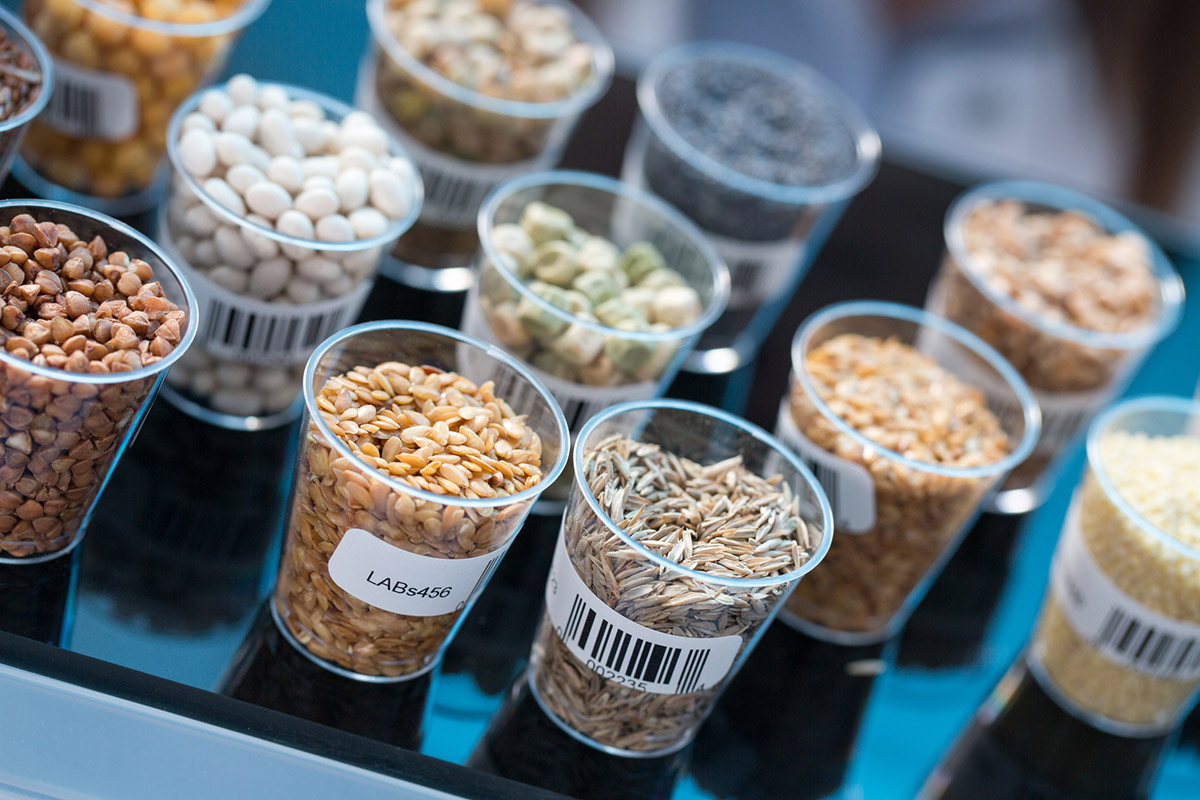
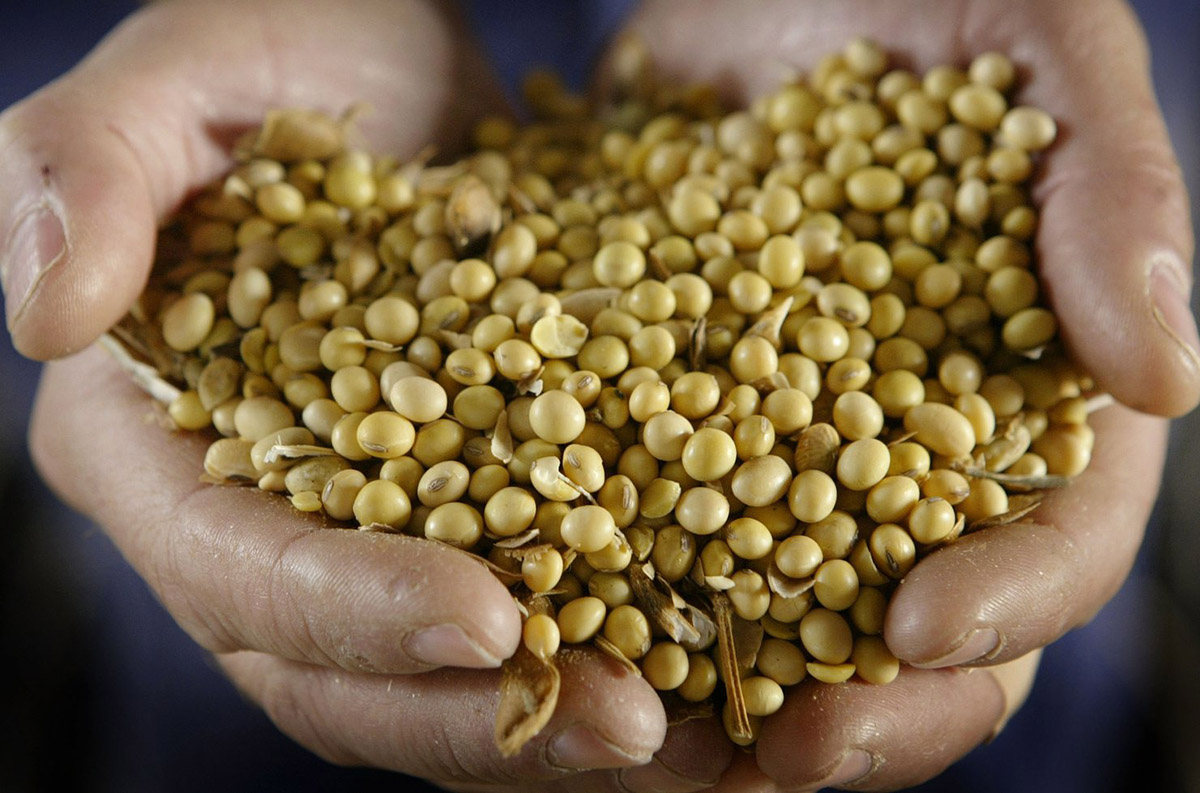
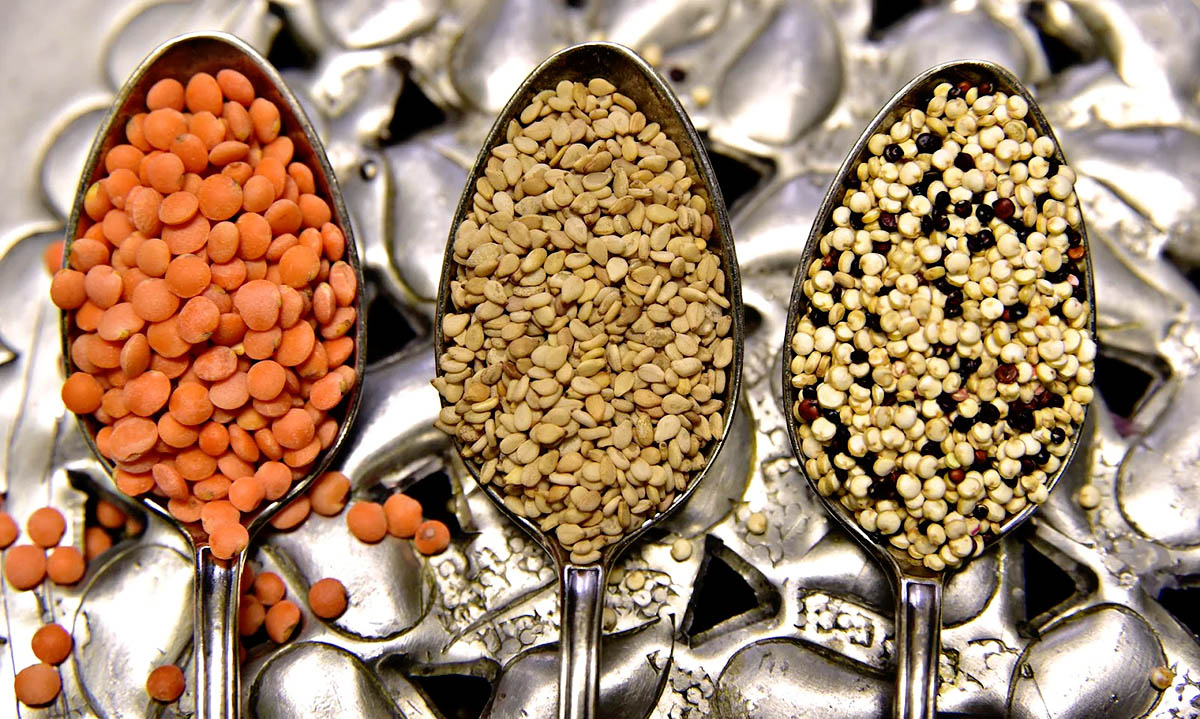

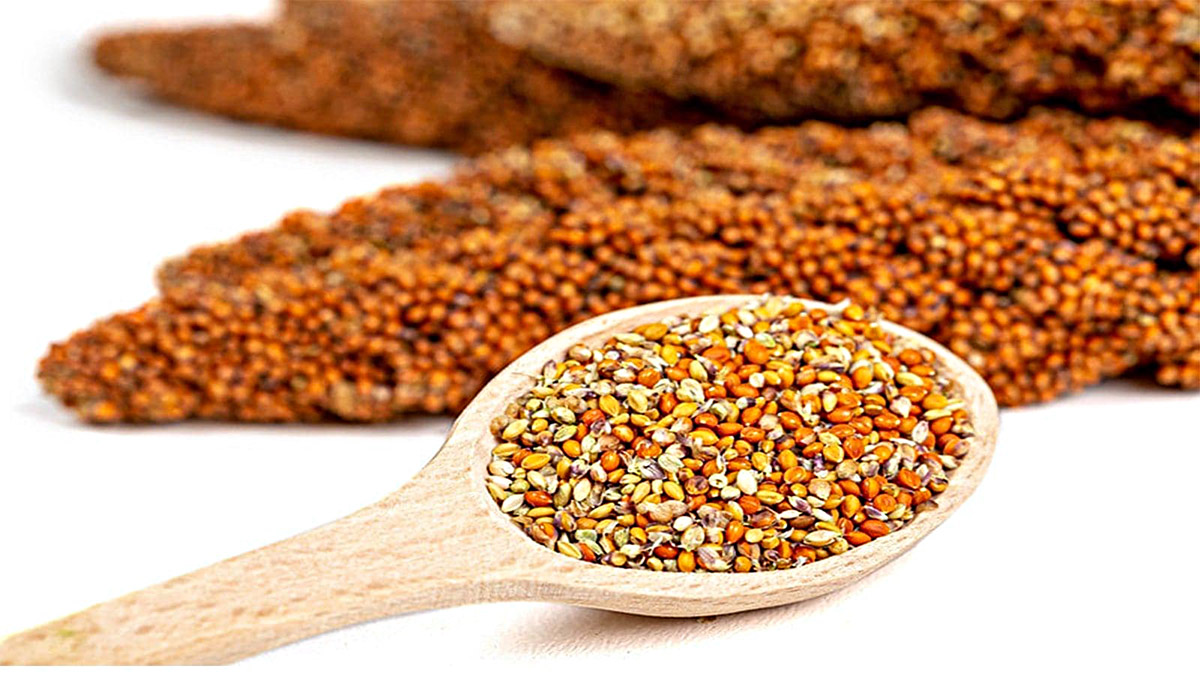
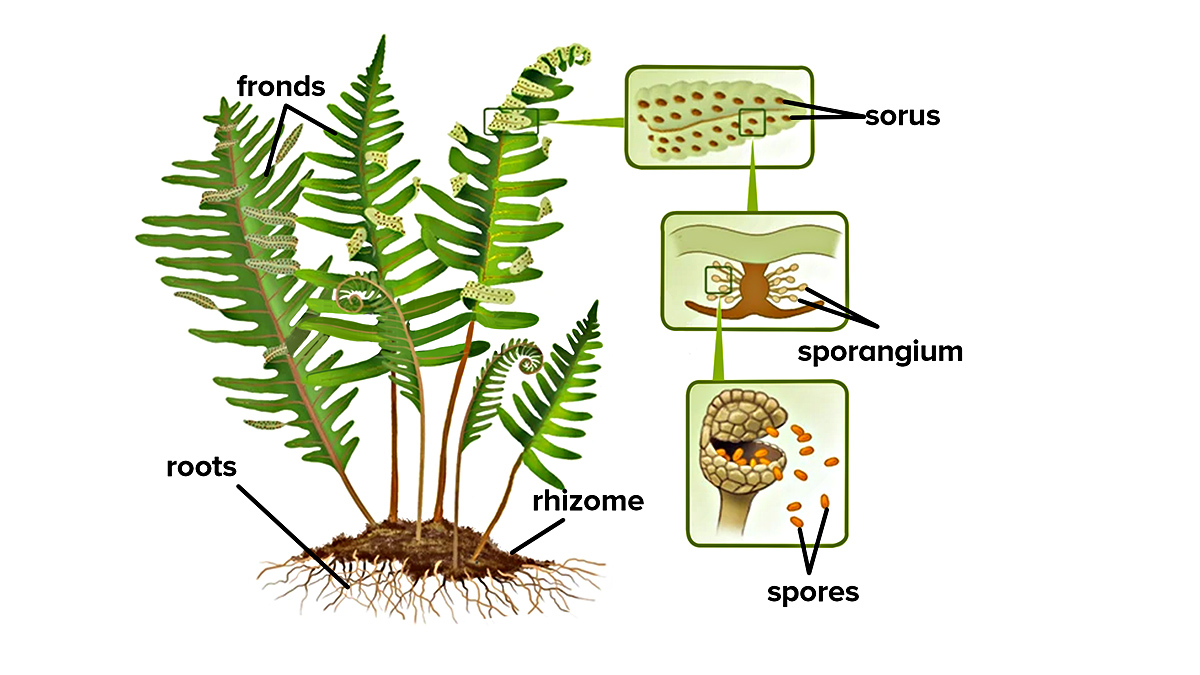
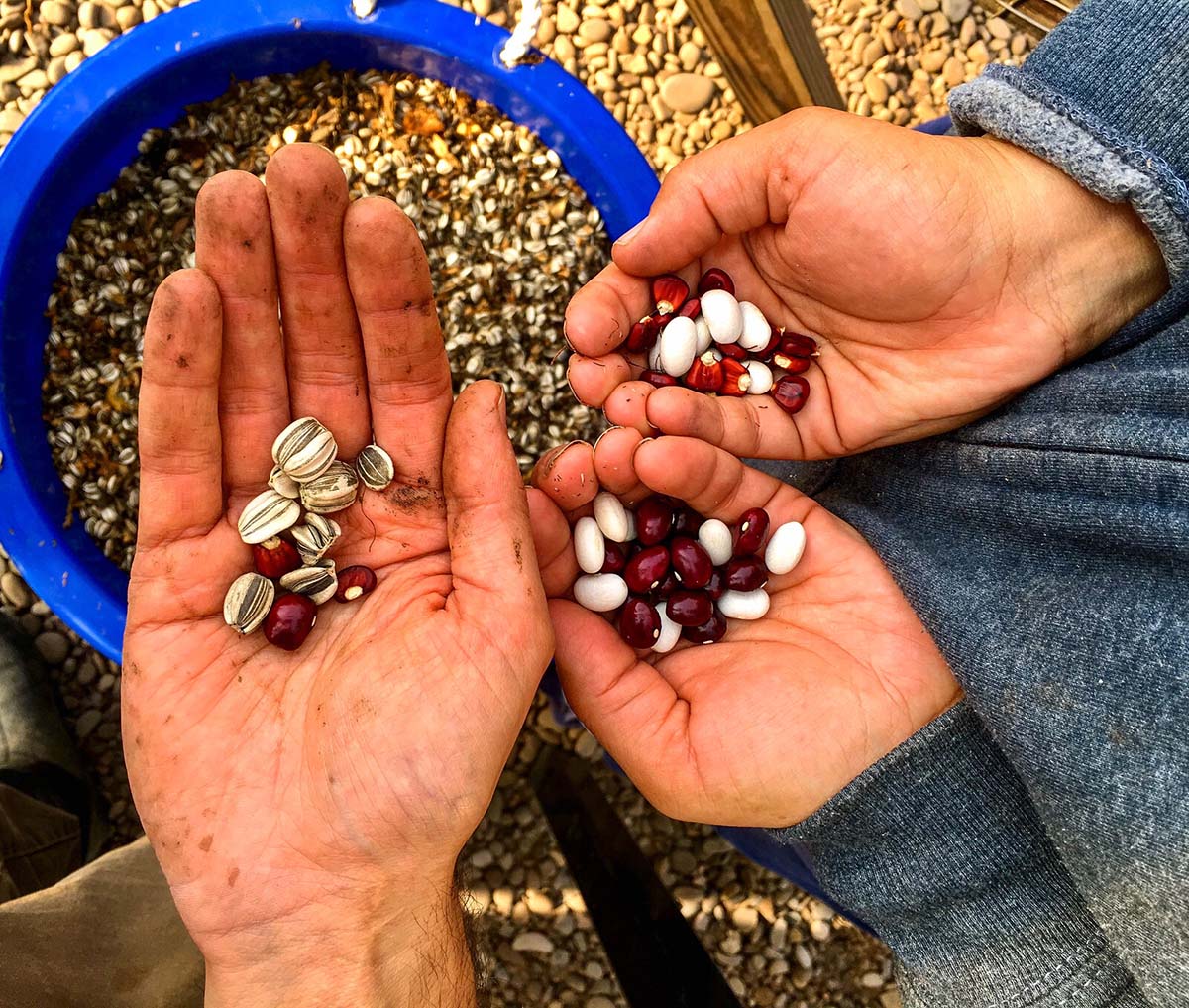

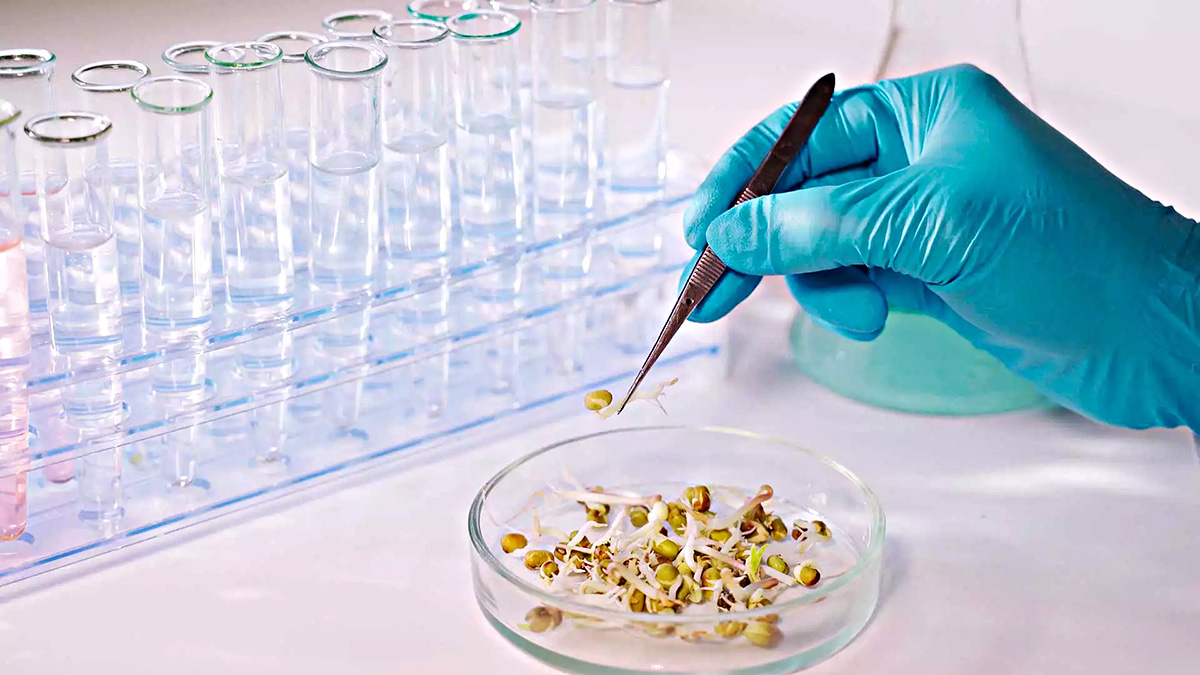

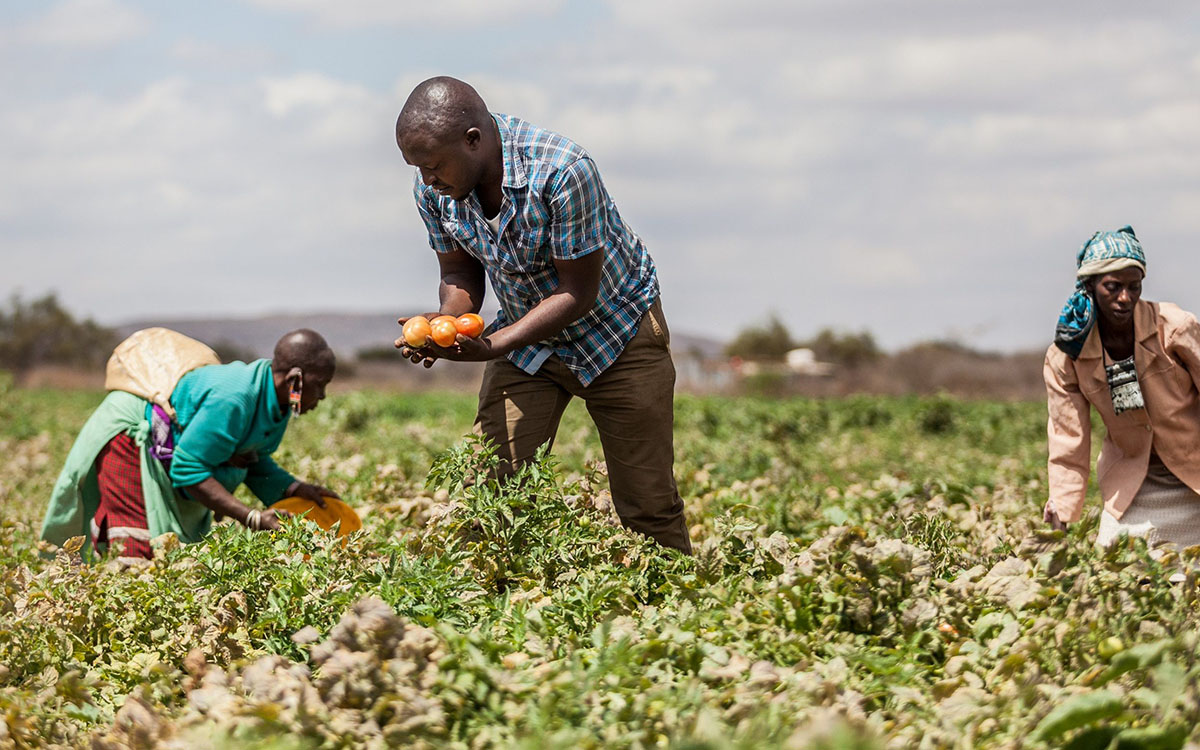

0 thoughts on “What Is The Controversy With The GMO Seeds Produced By Monsanto”